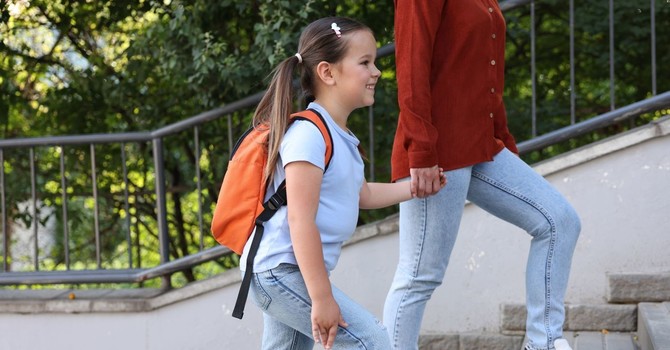Welcome to Day 4 of Bully-Proofing Your Child. This week’s focus is on cultivating empathy in your child.
Empathy is housed in the right supramarginal gyrus, which, in children, is still underdeveloped (Siegel & Payne, 2019). Not to worry—just because this brain structure isn’t fully formed yet doesn’t mean your child can’t show empathy. With your guidance and support, along with their natural brain development, they’ll be well on their way to becoming kind, caring, and compassionate individuals.
Helping Children Manage Emotions
A crucial first step toward building empathy is helping your child manage emotions. It’s important to teach them that no emotion is “good” or “bad”; each emotion communicates a unique message. Common emotions related to bullying include jealousy, hurt, a desire for power and control, and longing (Krazier, 2007). These can be tough for adults to handle—imagine how much harder it is for a child whose empathy-related brain structures aren’t fully matured yet. When your child struggles with difficult emotions, show empathy toward them. The more they experience your warmth and understanding, the more likely they are to develop these qualities themselves.
Recognizing Differences
Having open conversations about everyone’s individual strengths and differences can further enhance your child’s empathetic skills. A fun way to do this is by creating a “similarities and differences” chart together. Encourage your child to list how people vary—such as clothing choices, skin color, and cultural or ethnic backgrounds—to help them appreciate the uniqueness in everyone.
Practicing Empathy
It’s not enough for a child to simply “know” that people are different. They also need to imagine how others feel when they’re singled out or bullied. If your child mentions something like:
“We got a new kid in our class, and he sounded funny when he talked, so the whole class laughed.”
Reframe their perspective by saying:
“That’s really exciting that you have a new classmate. It must have been tough for him to speak in front of people he doesn’t know. I wonder how he felt when everyone laughed at him?”
If your child doesn’t know how to answer, prompt them to imagine themselves in a similar situation. Role-playing scenarios where your child is in the target’s shoes can be extremely helpful, as can scenarios where they practice standing up for themselves and others.
Positive Reinforcement
When you see your child demonstrating empathy, offer positive feedback. For example:
“Wow! It was really kind of you to share your lunch with that boy who lost his.”
Children love hearing they’ve done something right, and this positive reinforcement encourages them to show empathy more often.
Modeling Empathy
Finally, remember that children learn as much from what we do as from what we say. Make sure you’re not just talking about empathy but also demonstrating it in your everyday life. Children notice and absorb how the adults around them treat others.
Looking Ahead
Stay tuned for Day 5, where we’ll discuss ways to help your child communicate more effectively.
Are you worried you child is engaging in bully type behaviour and don’t know how to prevent it? Are you concerned your child has become a target? Are you wanting to enhance your child’s ability to be assertive and stand up for themselves, or learn how to be assertive without being aggressive? If so, the team at Eckert Psychology & Education Centre is here to guide you and your child on your journey towards assertiveness. Book your initial intake appointment today at www.eckertcentre.com and click the “Book an Appointment” button. You can also email us at info@eckert-psychology.com for more information. Remember, psychology services are covered by most extended health insurance plans.
Kymberley is a Registered Psychologist at Eckert Psychology & Education Centre. In her role, Kymberley provides counseling services for children and youth, parent support counselling, and counselling service for adults with developmental delays. Kymberley is an EMDR-Child Specialist whose practice is Theraplay informed. Kymberley is further trained in attachment-based counselling for children and parents, trauma, and Acceptance and Commitment Therapy (ACT). Kymberley’s passion is working with children and those that love them. She believes in their incredible capacity to be resilient when life asks difficult things from them.
References:
Krazier, S. (2007). 10 Days to a Bully-Proof Child: The Proven Program to Build Confidence and Stop Bullies for Good. New York, NY: Marlowe & Company.
Siegel, D. J., & Payne Bryson, T. (2019). The yes brain: How to cultivate courage, curiosity, and resilience in your child. New York, NY: Bantam Books.





